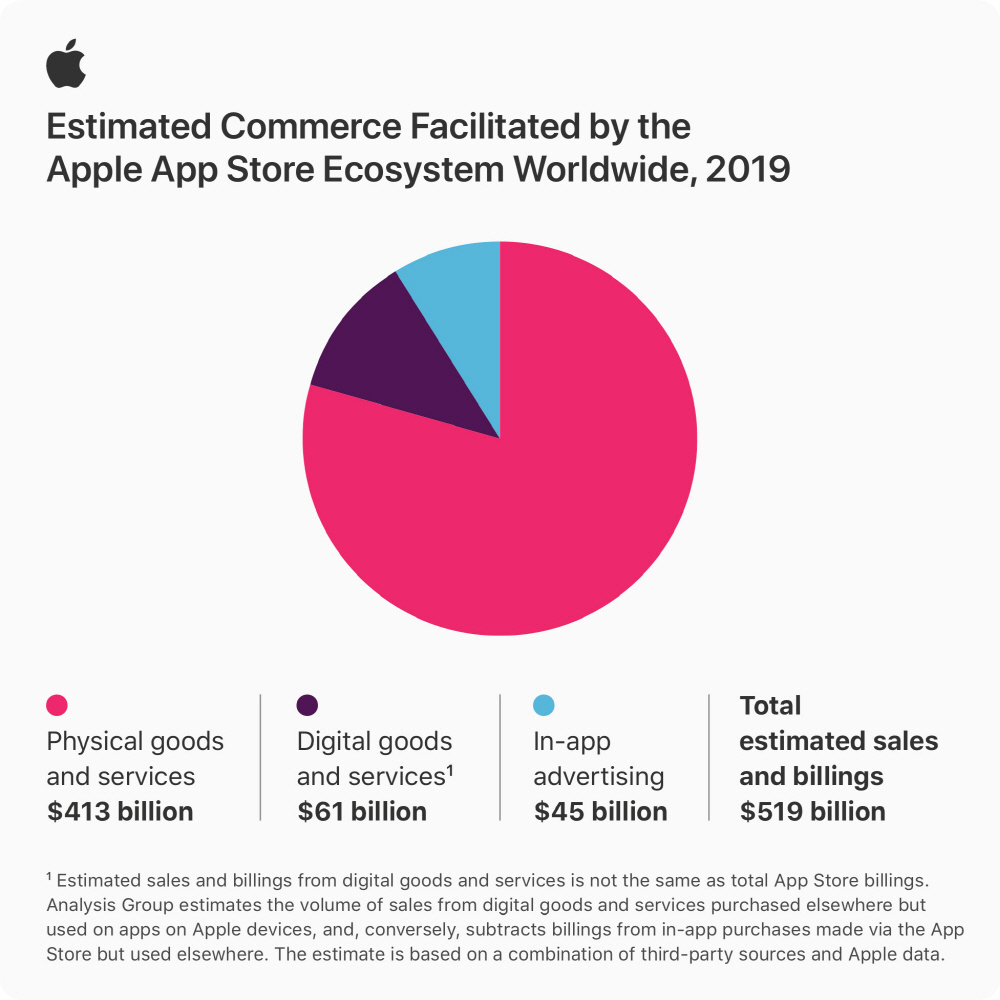
Apple announced on June 15 (local time) that its app store economy sales contributed US$ 191 billion in 2019 alone. The number highlights the impact of the app economy in 175 countries and various innovations.
The economic sphere referred to here is a synthesis of not only app store sales but also the overall impact on the real economy derived from it. It is said that Apple commissioned an analysis agency to find out the big picture that is difficult to grasp.
According to this, Apple found that the amount paid directly to the developer by the company was only a small fraction of the amount including the sale of goods or services sold through the app. Revenue fees related to digital goods and services that Apple refers to are fees for app prices and in-app payments. This means that it is very small out of the total amount of $519 billion. More than 85% of the $519 billion came from non-Apple developers and operators of large and medium-sized businesses.

Of the 519 billion dollars, the share of sales generated by Apple outside of the product or service, that is, the app, is up to 413 billion dollars, and most of the sales in the product and service sector are from mobile commerce apps. Retail accounts for the largest share of this, reaching $268 billion. As it revealed that it did not include daily necessities or grocery delivery, it made me think about expanding the base of the App Store economy.
In addition, for non-retail sales, delivery or food delivery app sales amount to $31 billion. Even under the Corona 19 disaster that entered 2020, delivery grew rapidly, but it can be said that there have been considerable consumer demands from before.
In addition, sales related to digital goods and services are $61 billion, and games are the largest among them. Of the $45 billion in in-app advertising revenue, 44% is made in-game.
The biggest concern now, as well as in 2019, is the change in trend and the impact on the real economy in the Corona 19 situation. In this regard, it is revealed that it is notable to work from home, apps that help promote work in work, and delivery growth.
The App Store, which opened in 2008, has 2 million apps and has grown into a place where more than 500 million people visit each week in 175 countries and regions around the world. In the United States, lawsuits have been filed against the App Store in violation of antitrust laws. Related information can be found here .

